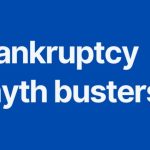Voluntary Administrations (VAs) allow insolvent companies to continue to operate
Voluntary Administration (VA) is a process by which an insolvent company is placed into the hands of an independent person – a Voluntary Administrator – who assesses available options to ensure the best outcome for the company’s directors and creditors.
The process helps the company to continue to operate. If this isn’t possible, it helps creditors to achieve a greater return than if the business was liquidated.
A VA is generally instigated when the directors of a distressed company suspect the company is insolvent, or is likely to become insolvent. It is designed to avoid the involvement of the Courts.
Suspends most creditors’ claims
Another reason for instigating a VA might be a need to freeze creditors’ claims to allow time to reduce outstanding debt and to rebuild sales and profits.
A VA appointment immediately suspends most creditors’ claims against the company.
Implementing a proposal for the company’s ongoing operations and future
Once this decision has been made, a VA appointment immediately suspends the majority of creditors’ claims against the company. The next step is for the directors to work with the voluntary administrator on a proposal to achieve an outcome for the company’s future.
The proposal is presented to creditors at a meeting in the form of a Deed of Company Arrangement and provides information on how the company will operate, what assets will be sold or retained and how the creditors will be paid.

Our extensive experience has helped many directors and companies avoid liquidation
When a company is experiencing financial issues, it is a difficult time for stakeholders – both financially and emotionally. We believe that people need and deserve to be treated with dignity and respect and we work hard to save businesses where possible.
WAIS’s corporate insolvency specialists have vast experience working with clients on VAs and have assisted many directors and companies avoid liquidation.
Are you a Director or have a client who thinks they are insolvent?
Get in touch early so our VA experts can help assess the situation and provide a solution

General process of Voluntary Administrations (VAs)
1
Directors initiate process
Directors usually instigate a VA when they believe the company is insolvent, or is likely to become insolvent.
2
Suspend creditors' claims
A VA appointment immediately suspends most creditors’ claims against the company.
3
Directors work with the Voluntary Administrator
The director or directors then work with the Voluntary Administrator to implement a proposal for the company’s future.
4
Proposal to creditors
This proposal is then put to creditors at a meeting, in the form of a Deed of Company Arrangement.
Voluntary Administration expert insights & knowledge
Voluntary administration (VA) isn’t a one size fits all solution. However, a commonality is to give businesses that are experiencing solvency or cash flow problems some breathing space from their creditors while securing and protecting the business’s assets and, in some instances, maintaining its goodwill by continuing to trade. Concurrently, the VA enables…
It’s been nearly 30 years since the Voluntary Administration (VA) regime in the Corporations Act was introduced. In that time, countless businesses around the country have used this corporate lifeline. Here, we look at how one Australian business used the VA regime to reinvent itself, save the business and jobs, and provide a good return for creditors…
Corporate solutions for businesses experiencing financial distress
Corporate Insolvency
A company that cannot pay its debts when they are due is considered to be insolvent. There are several warning signs that a company may become insolvent…
Read moreReceivership
If a company is in financial difficulty, a receiver may be appointed to take control of some or all of its assets to ensure the payment of secured creditors…
Read moreLiquidations
When the assets of a business are liquidated, it means they are converted into cash. This situation spells the end for the business, as with stock, equipment…
Read moreDeed of Company Arrangement (DOCA)
A DOCA can help a company avoid liquidation and remain in business allowing it to continue with all or some of its usual business operations…
Read moreSmall Business Restructuring
As Small Business Restructuring Practitioners, our Registered Liquidators ensure you benefit from the insolvency reforms. WAIS Registered Liquidators have vast experience in restructuring small businesses…
Read moreVoluntary Administration (VA) Experts
Voluntary Administrations (VAs) allow insolvent companies to continue to operate, or, if this is not possible, they provide for a greater return to creditors than they would otherwise receive if the business was liquidated…
Read more



















